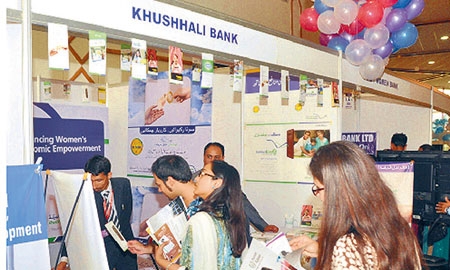With a vision to bring financial services to the less fortunate part of the Pakistani population, Khushhalibank began in the year 2000 with the idea that microfinance could not only help alleviate poverty, but also contribute to moving Pakistan’s economy forward. Taking into account that only 12 to 13 per cent of the total population is banked, President of Khushhalibank Ghalib Nishtar asserts that, “We need to include more and more people so they can be part of the financial system. That is the key challenge and an opportunity for the banking sector of Pakistan. Microfinance institutions have a role which could be a game changer for the economy of the country.”
Headquartered in Islamabad, Khushhalibank operates under the supervision of the State Bank of Pakistan, and counts many of the country’s leading commercial banks and blue chip international funds among its shareholders. For more than a decade, it has provided a platform of financial services to the poor, while at the same time promoting transparency and high quality governance. Loan amounts generally range from just £98 to £1,450, and provide a critical service not available from conventional banks.
Originally envisaged as part of the Government of Pakistan’s Poverty Reduction Strategy and its Microfinance Sector Development Programme, Khushhalibank has since taken on a life of its own. “Pakistan was nowhere on the map of microfinance back in 2000 but now it ranks among the top three countries in the world consistently in terms of its microfinance business climate. The policy framework has changed. The environment has changed and that’s how the perception changed,” according to Mr Nishtar.
Presently, he says, investors are beginning to see microfinance first and foremost as a business opportunity. “People who have done well in the UK market are probably the first ones to be coming in and investing in Pakistan and expanding so I think it is a natural ally.”
The bank has a loan recovery ratio of 98 per cent and a retention rate of almost 75 per cent. Its active client base has expanded by more than 46 per cent during the past five years and now counts with over half a million regular clients, many of them active savers as well as borrowers. “We are making a transition from a household to micro enterprise lending paradigm and that has the ability to create job opportunities as well as develop social entrepreneurialism.”
Khushhalibank, like Pakistan’s emerging financial services industry, sees much more potential in the future. “There is so much to do,” Mr Nishtar says. “We have got almost everything right, and if you access the right people and get your story across, they will invest.”

0 COMMENTS